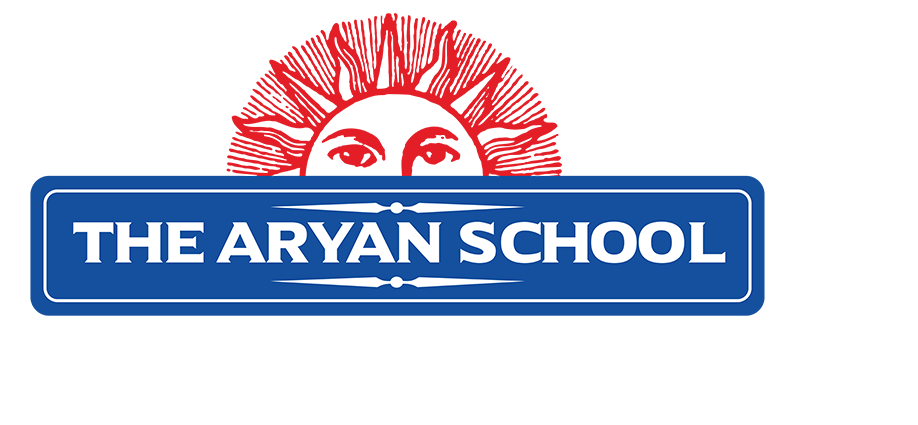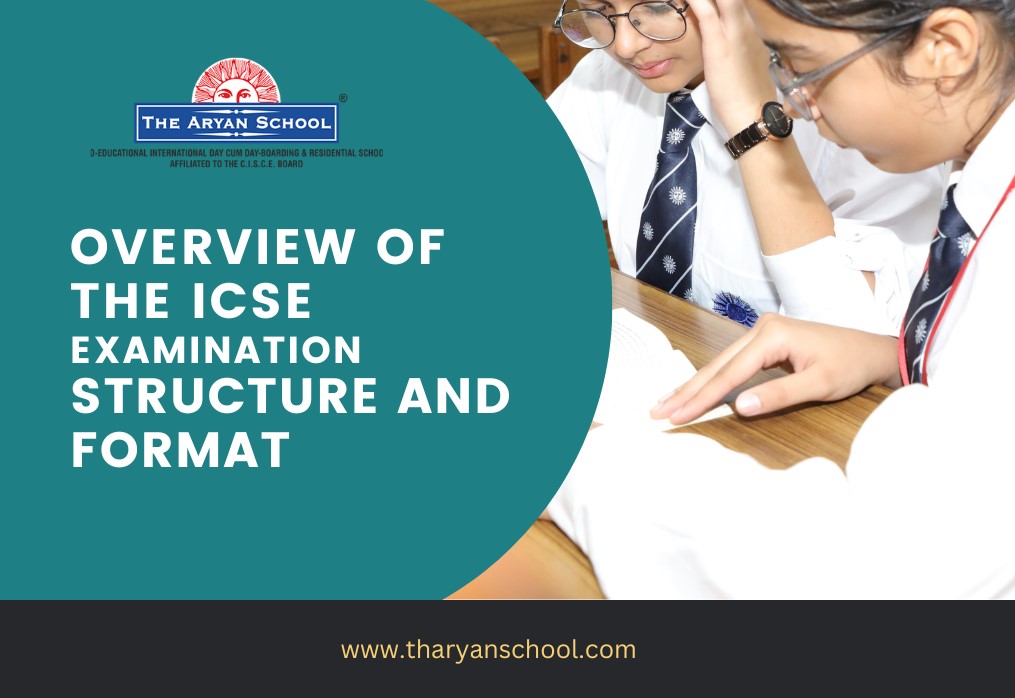Overview of the ICSE Examination Structure and Format
ICSE Examination Structure and Format : The Indian Certificate of Secondary Education (ICSE) is an examination conducted by the Council for the Indian School Certificate Examinations (CISCE), a private board of school education in India. The ICSE examination is considered one of the most competitive and comprehensive school-leaving examinations in the country.
Unlock your potential with Aryan School: Where Excellence meets Preparation for the ICSE Examinations!
History and Introduction of ICSE Examination Structure and Format
The ICSE was established in 1958 as a replacement for the Cambridge School Certificate Examination by the Local Examinations Syndicate of the Cambridge University. After independence, the need for an all-India examination board was felt. The ICSE was created to fulfill this requirement.
Over the years, the ICSE has emerged as one of the most popular school-leaving certificate examinations in India. As of 2022, there are over 2,500 ICSE affiliated schools in India and abroad. The examination is conducted in English medium only.
Examination Structure
The ICSE examinations are conducted annually in the months of February-March.
Subjects
The ICSE examinations has a wide range of subjects. There are 5 subjects that all students must take:
- English
- Hindi
- History, Civics and Geography
- Mathematics / Economics
- Science / Commercial Studies
- Optional (Home Science, Physical Education, Computers or Arts)
Exam Pattern
- The examination for each subject consists of a written paper of 80 marks and a 20 marks project/practical component.
- The written exam is for 2 hours duration except mathematics (2.5 hours and Hindi 3 hours)
- The paper consists of different types of questions such as short answer questions, long answer questions that test the students’ knowledge, comprehension and application of concepts.
- For subjects involving practical work such as Sciences, the written exam consists of a theory component of 80 marks and a practical component of 20 marks conducted internally by the school.
Evaluation System
The ICSE follows a 9-point grading system for subjects from A1 to D with A1 being the highest and D the lowest.
- For the written exam component, each paper is scored out of 100 marks in total.
- To obtain a minimum passing grade of D, students need to score at least 33% marks in each paper.
- The final grade for each subject is computed by adding up the marks obtained in the written exam (80% weightage) and the project/practical marks (20% weightage).
Pass Criteria
To pass the ICSE examinations, students need to fulfill the following criteria:
- Obtain a minimum of Grade D or above in all 5 compulsory subjects (33% marks in each)
- Obtain an overall aggregate of 40% marks in the best 6 subjects including English
Thus, students need to score at least 40% marks overall across 6 subjects and minimum 33% marks in each of the 5 compulsory subjects to pass the examination.
Revised ICSE Exam Pattern
In 2019, CISCE announced a revised exam pattern for ICSE examinations from 2020 onwards. The key changes are:
Exam Structure
- The single ICSE exam conducted annually is now split into 2 semesters:
- Semester 1 held around November-December
- Semester 2 held around February-March
- For each semester, students have to appear for exams in only 3-4 subjects.
- The remaining subjects are covered in the other semester. Thus, the entire course content is divided across two exams.
Question Paper Format
- For Semester 1, the question paper will be in a multiple-choice questions (MCQ) format consisting of 50-60 questions per paper.
- Semester 2 will consist of both long answer and short answer type questions as per the conventional ICSE exam pattern.
- For languages, the Reading Comprehension component will be covered in Semester 1. The writing sections such as essay writing will be in Semester 2.
Marking Scheme
- For MCQ based papers in Semester 1, each question carries 1 mark with no negative marking for wrong answers.
- In Semester 2, the conventional ICSE marking scheme will be followed with long answer and short answer questions carrying 3-5 marks and 1-2 marks respectively.
Result Declaration
- Students will receive a combined final score after Semester 2, aggregating marks from both the semesters.
- The 9-point grading scale will be applicable for the final subject scores.
Recommendations for ICSE Exam Preparation
Here are some key tips recommended for effective ICSE exam preparation:
- Thoroughly analyze the syllabus and exam pattern to understand topics and difficulty level
- Solve previous year question papers to become familiar with exam pattern and format
- Focus on strengthening core concepts through rigorous practice and revision
- Write mock exams periodically in exam-like conditions to practice time management
- Work on your writing skills including grammar, vocabulary, and sentence formation
- Develop effective study notes, formulas or summaries for quick revision before exams
- Take help from reference books, sample papers, online videos to clear doubts
- Manage stress and anxiety through meditation, yoga, relaxing hobbies and adequate sleep
By starting preparation early, managing time efficiently, revising thoroughly and taking mock tests, students can perform well in the ICSE examinations.
Conclusion to ICSE Examination Structure and Format
ICSE Examination Structure and Format : The ICSE examination conducted by CISCE is one of the most prestigious school leaving certificate examinations in India. With its broad curriculum, comprehensive exam pattern and rigorous evaluation, it ensures that students are thoroughly tested on a wide variety of subjects at the end of Class 10.
The revised two-semester exam pattern introduces more objectivity through MCQ format questions. By understanding the examination structure and format in depth and preparing systematically, students can excel in the ICSE exams.
Prepare for success with Aryan School’s comprehensive ICSE exam guidance. Enroll now for a brighter academic future!
Why Choose The Aryan School :
At Aryan School, we offer unparalleled support and resources to help students excel in the ICSE examinations. Our experienced faculty and tailored study programs ensure every student reaches their full potential. Join us to embark on a journey of academic excellence and achievement.
FAQs on ICSE Examination Structure and Format:
Q: How many subjects are there in ICSE board exam?
A: There are 5 compulsory and 3 elective subjects, so total 8 subjects for the ICSE board exams.
Q: What is the duration of ICSE exam?
A: Each ICSE exam paper is 2 hours long.
Q: What is the passing mark for ICSE?
A: Minimum 33% marks in each subject and overall 40% marks across 6 subjects.
Q: How are marks divided in ICSE?
A: 80% weightage to written exam, 20% to practical/project marks.
Q: Is ICSE marking lenient?
A: ICSE has a rigorous evaluation system and is not lenient in marking. Students need to work hard to score well.


